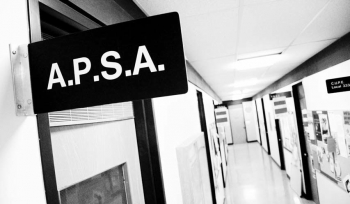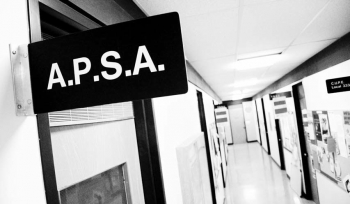

The following article appeared in SFU's student-run newspaper; The Peak, on June 28, 2010.
By David Proctor News Editor
B.C. Finance Minister Colin Hansen announced that the unions representing SFU’s faculty and professional staff both reached two-year collective agreements with the province and the university last week. “It’s great news that SFU’s administrative and professional staff have reached an agreement,” said Minister of Advanced Education and Labour Market Development Moira Stilwell in a press release. “They play key roles in support of the academic mission and are an integral part of our post-secondary system in B.C.”
Although details about the deals have not been released publicly, Hansen revealed that the agreements were made under the provincial government’s Public Sector Bargaining Mandate 2010. A key element of Mandate 2010, however, was an absolute refusal to increase net compensation costs. As a result, if either of these agreements include wage increases, those expenditures will be offset by cuts in other areas.
According to the provincial government’s website, “The goal of Mandate 2010 is to achieve voluntarily-negotiated collective agreements in the public sector that will continue to support the province in delivering public services in a cost-effective and financially prudent manner.” Hansen added in a press release that “I’m pleased to see that real progress continues to be made at the negotiating tables. Despite the economic slowdown, a lot of good work has been done by unions and employers in collective bargaining across B.C.’s public sector.”
The first union to reach an agreement was the Administrative and Professional Staff Association, which represents 800 continuing, non-faculty management, supervisory, and professional employees at SFU. Members of the APSA include medical professionals, office administrators, and administrative coordinators. The SFU Faculty Association also reached an agreement, ensuring that the university’s instructors and researchers will continue their work uninterrupted until at least 2012.
The two other major unions at SFU are also at similar stages in renegotiation of their various collective agreements. Members of the Teaching Support Staff Union, which represents teaching assistants at the university including TAs and sessional instructors, are currently continuing to work under the terms of an extended agreement that was originally scheduled to end on April 30. TSSU representatives did not respond to a request for an interview by the time The Peak went to press.
CUPE 3338 has six separate collective agreements at SFU, of which four — those with SFU, SFSS Food and Beverage, SFPIRG, and Best (or SFU’s janitorial workers — are currently up for renegotiation. Talks with Food and Beverage and SFU have not yet started, and talks with SFPIRG are scheduled to start next month, and all other agreements are currently in ongoing talks. Of CUPE 3338’s six collective agreements, only the agreement with SFU is subject to the 2010 provincial negotiating mandate.
Although union job action has been rare at SFU — the most recent strike occurred in fall 2007 when workers at the SFU Childcare Society picketed for four weeks before accepting a mediated settlement — strike action has been a particularly present threat at post-secondary institutions in Ontario. College faculty in that province voted not to strike in an extremely close 51.45 per cent decision last February, and a three-month-long strike by CUPE workers at York University shut the institution down until the provincial government ordered those workers to return to their jobs in January 2009.
